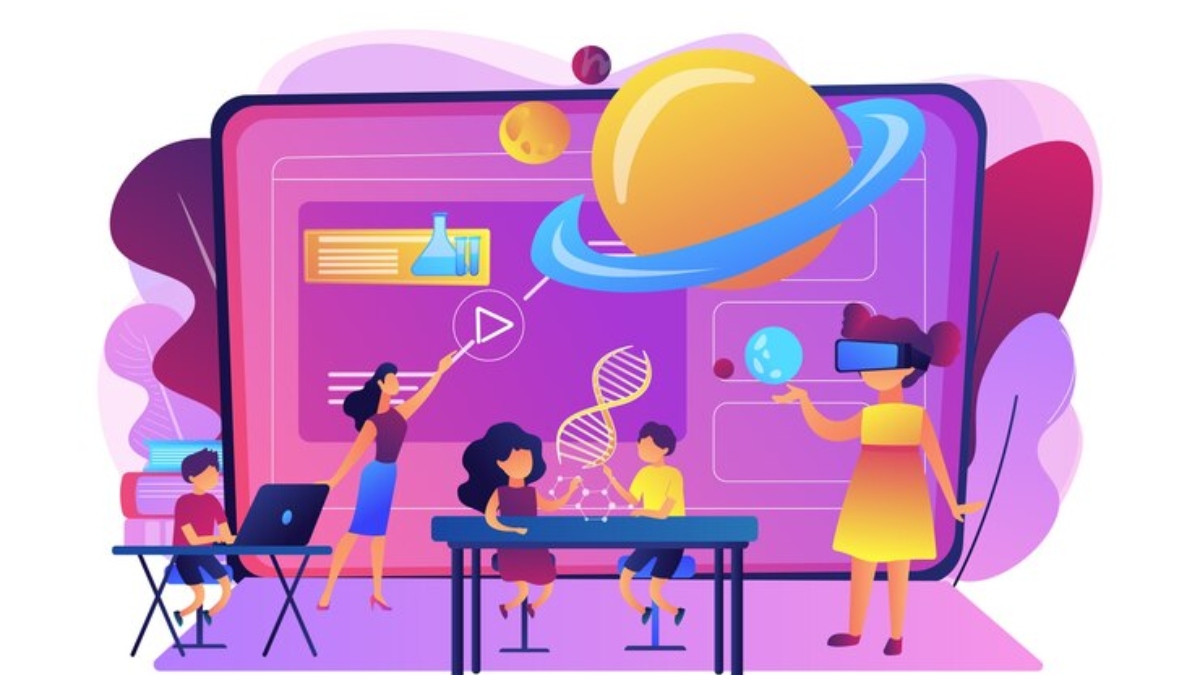By Bhaskar Reddy C.M
The education landscape is undergoing a dynamic transformation, propelled by the relentless advancement of technology. Emerging technologies like artificial intelligence (AI) and big data are rapidly making their way into classrooms, fundamentally reshaping the way we learn and acquire skills. This integration presents a unique opportunity to elevate the learning process, making it more engaging, personalised, and ultimately, more effective.
AI is arguably the most potent force shaping the future of education. AI-powered tutors can personalise learning experiences to individual needs and learning styles. Students receive real-time feedback and adaptive learning paths, ensuring they progress at their own pace and grasp complex concepts effectively. Imagine a student struggling with algebra receiving targeted practice problems specifically tailored to their weaknesses, or a student excelling in science being challenged with advanced material that pushes their intellectual boundaries. This level of personalization, facilitated by AI, has the potential to revolutionise the way we learn and achieve unparalleled educational outcomes.
Harnessing the power of big data for educational insights
Big data is another transformative force impacting education. By analysing massive amounts of student data, educators can gain valuable insights into individual strengths, weaknesses, and learning patterns. This data-driven approach allows for personalised instruction, including targeted interventions for struggling students and enriched learning experiences for high achievers. Imagine a teacher being able to identify students at risk of falling behind before it happens, allowing them to intervene early with targeted support and resources. Conversely, imagine a teacher being able to identify students with exceptional potential, allowing them to access advanced courses and opportunities that nurture their talents. Big data empowers educators to make data-informed decisions that cater to the diverse needs of their students, leading to a more equitable and effective learning environment for all.
Developing essential skills for the 21st century
While these technologies offer vast potential for enhancing knowledge acquisition, their true impact lies in their ability to cultivate essential skills crucial for the 21st century. These skills include:
Critical thinking and problem-solving: By tackling AI-generated challenges and analysing complex data sets, students hone their ability to critically evaluate information, solve problems creatively, and adapt to changing circumstances. This prepares them to navigate the complex challenges and uncertainties of the ever-evolving world.
Collaboration and communication: Collaborative learning platforms and online forums encourage students to work effectively in teams, share ideas, and communicate persuasively with diverse groups of individuals. These skills are highly sought after in today’s interconnected world and are crucial for success in any field.
Digital literacy and adaptability: In a world increasingly reliant on technology, the ability to learn and adapt to new tools and platforms is paramount. Emerging technologies in education equip students with the digital literacy skills needed to thrive in a rapidly changing technological landscape. This prepares them to become lifelong learners who can adapt and embrace new technologies throughout their careers and personal lives.
Addressing the challenges of integrating emerging technologies
Despite the numerous benefits, integrating emerging technologies into education presents several challenges that need to be addressed:
Accessibility and equity: Ensuring equitable access to technology and the necessary infrastructure remains crucial. Bridging the digital divide is essential to prevent further disparities in educational outcomes. This requires an investment in infrastructure and resources to ensure all students have access to the technology and support they need to succeed.
Ethical considerations: The use of AI and big data raises ethical concerns regarding data privacy, bias in algorithms, and potential social and psychological impacts. Implementing ethical frameworks and promoting responsible use is vital. This includes ensuring transparency in data collection and analysis, mitigating bias in algorithms, and protecting student privacy.
Teacher training and support: Educators require training and support to effectively integrate emerging technologies into their teaching practices. This ensures technology complements traditional pedagogy and enhances the learning process. Providing ongoing professional development opportunities for educators is key to ensuring they have the skills and knowledge needed to leverage technology effectively in their classrooms.
Reimagining education for the future
The integration of emerging technologies into education represents more than just incorporating new tools; it signifies a paradigm shift in the way we think about learning. It’s about creating a dynamic learning environment that fosters curiosity, encourages experimentation, and empowers students to become lifelong learners. By embracing these advancements and tackling the accompanying challenges, we can unlock the transformative potential of technology and equip future generations with the skills and knowledge needed to thrive in the complex and ever-evolving world of tomorrow.
However, it’s important to remember that technology is a tool, not a solution. Emerging technologies should not replace traditional pedagogical methods but rather complement and enhance them. We must strive to find the right balance between technology and human interaction, ensuring the learning experience remains personal, meaningful, and enriching. Ultimately, the success of integrating emerging technologies in education hinges on our collective commitment to fostering a learner-centric approach that prioritises skill development and empowers individuals to reach their full potential. As we move forward.
The author is CEO of Gopalan Foundations. Views are personal.
